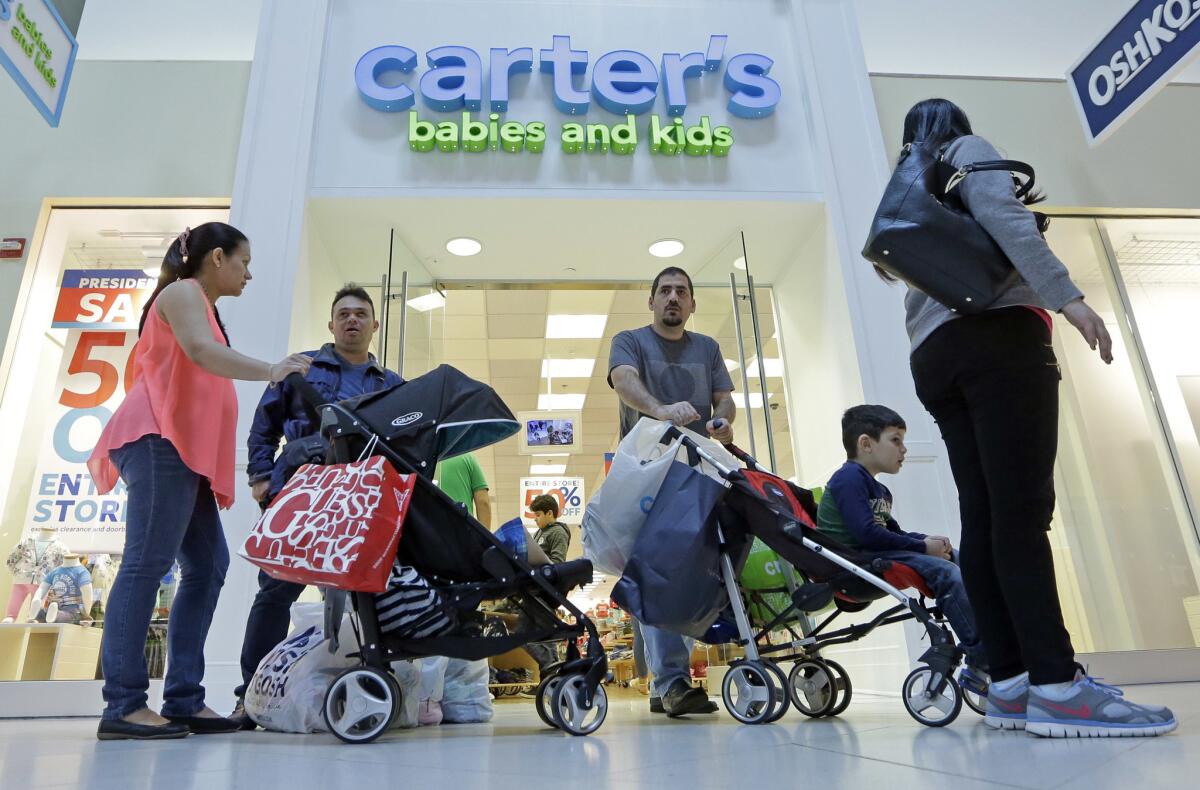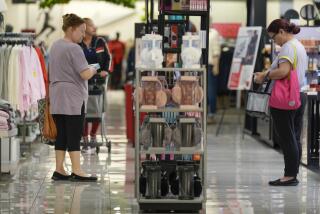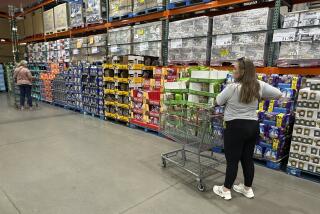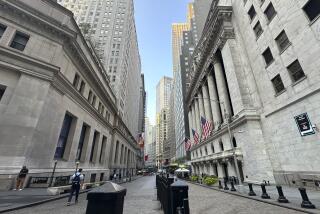Consumer spending jumps the most in nearly seven years

Reporting from Washington — Consumers pulled their wallets out of winter hibernation in April, increasing their spending at the fastest pace in nearly seven years in a sign that the economy is growing solidly again this spring.
Personal consumption expenditures grew by 1% after being flat in March and posting small gains the previous two months, the Commerce Department said Tuesday.
A jump in purchases of motor vehicles and long-lasting durable goods helped fuel the rise.
The last time consumer spending increased at a faster pace was in August 2009, just after the official end of the Great Recession.
Consumers started the year’s second quarter “with a bang,” said Stuart Hoffman, chief economist at PNC Financial Services.
“Consumer spending will continue to lead economic growth in 2016, as more jobs and rising wages give households more money to spend,” he said.
Another solid month of income growth was a key to the boost in spending. Consumers had more money in their pockets and regained confidence after financial markets rebounded following steep declines at the start of the year.
Personal income increased 0.4% in April, the third such gain in four months, the Commerce Department said.
Instead of saving the extra income, as they had earlier this year, consumers spent it in April. The percentage of disposable income saved dropped sharply to 5.4% from 5.9% the previous month.
The last time the savings rate was lower was in December.
“For all the concern about income inequality and stagnant wages, the economy overall is generating a lot of income for people,” said Chris Rupkey, chief financial economist at Union Bank in New York. “And they are spending it.”
The increased spending led to a rise in inflation. The price index for personal consumption expenditures increased 0.3% in April after a 0.1% gain the previous month.
For the 12 months ended April 30, prices increased 1.1%. That was the highest 12-month pace since January.
Federal Reserve policymakers want annual inflation to be 2%. Signs that inflation is moving toward that target, along with other data showing an improving economy, make it more likely Fed officials will nudge up a key interest rate this month.
Analysts have forecast that economic growth would rebound this spring after a weak winter.
On Friday, the Commerce Department said the economy grew at a 0.8% annual rate in the first quarter. While that was an improvement over an earlier estimate of 0.5%, the pace still was well below the economy’s potential.
Growth is expected to rebound to nearly 3% in the second quarter. Tuesday’s consumer spending figures for April showed that the quarter got off to a strong start.
“Net, net, consumers picked up the pace in April so you know the entire economy cannot be too far behind,” Rupkey said.
More to Read
Inside the business of entertainment
The Wide Shot brings you news, analysis and insights on everything from streaming wars to production — and what it all means for the future.
You may occasionally receive promotional content from the Los Angeles Times.











